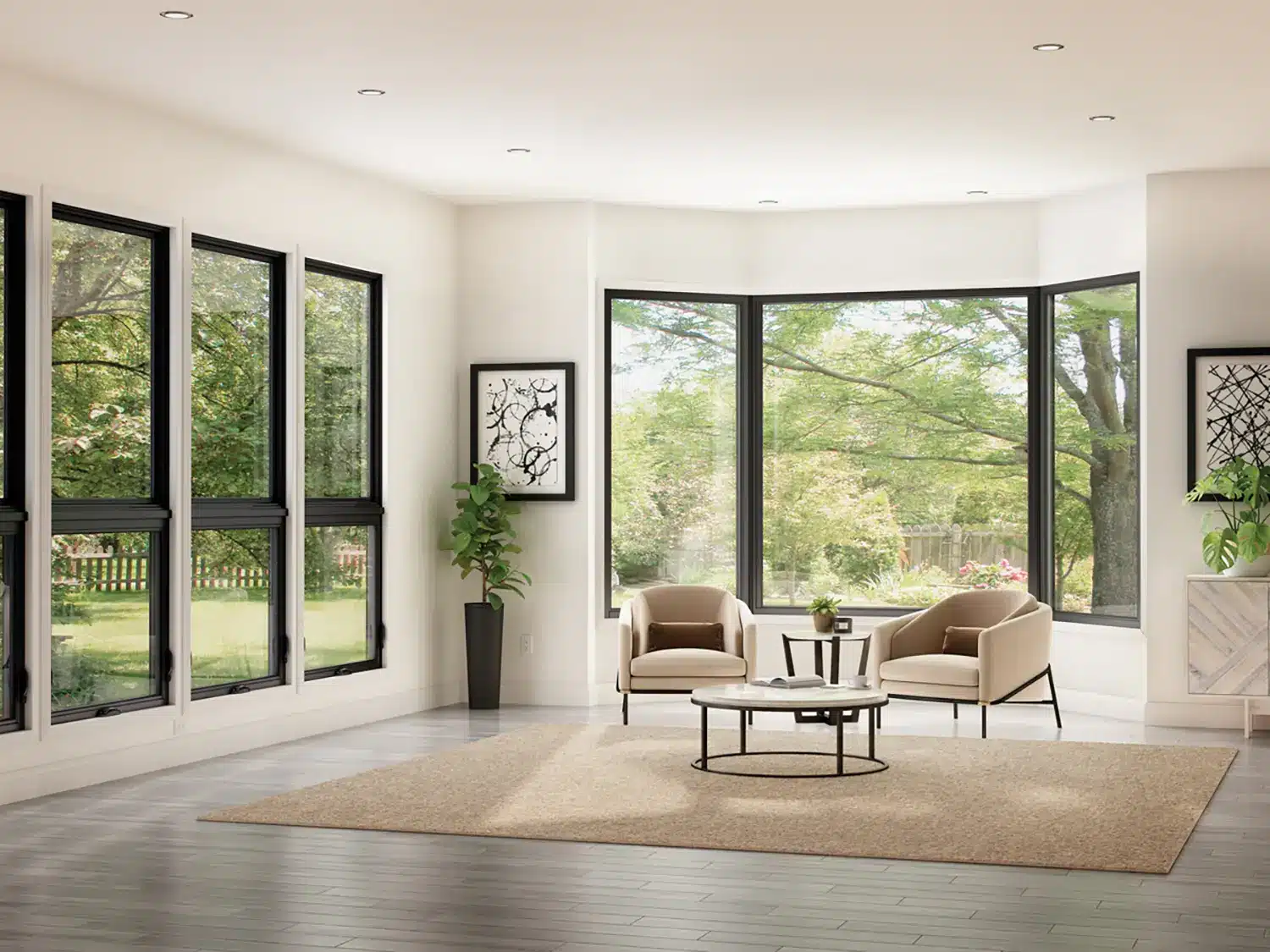Choosing the right windows is crucial for your home’s safety, efficiency, and comfort. In areas prone to severe weather, such as Miami, installing impact doors and windows can provide superior protection. Understanding the differences between impact windows and regular windows helps homeowners make an informed decision that best suits their needs and budget.
What Are Regular Windows?
Regular windows are the standard windows found in most homes. They typically consist of a single or double pane of glass within a frame made of wood, aluminum, or vinyl. These windows are designed for general use, providing natural light, ventilation, and insulation.
While regular windows are effective for everyday conditions, they lack the strength to withstand extreme weather events. During high winds, storms, or hurricanes, regular windows can shatter easily, potentially causing significant damage and injury.
What Are Impact Windows?
Impact windows, also known as hurricane windows, are designed to withstand extreme weather conditions, including hurricanes and tropical storms. These windows consist of multiple layers of glass bonded with a polyvinyl butyral (PVB) or ethylene-vinyl acetate (EVA) interlayer. This layered construction allows impact windows to absorb force and remain intact, even if the glass cracks upon impact.
Impact windows are a staple in hurricane-prone areas like Florida, where building codes often require homes to be equipped with hurricane-resistant materials. Many homeowners pair them with impact doors in Miami to create a fully storm-resistant home.
Key Differences Between Impact and Regular Windows
1. Construction and Materials
- Regular Windows: Typically made of a single or double pane of glass. While double-pane windows offer better insulation than single-pane ones, they still lack the durability needed for extreme weather protection.
- Impact Windows: Feature multiple layers of glass with a strong interlayer. Even if the outer layer breaks, the interlayer holds the glass together, preventing dangerous shards from flying into the home.
2. Safety and Protection
- Regular Windows: Can shatter easily under pressure from high winds, flying debris, or attempted break-ins. Broken glass can lead to injuries and significant damage.
- Impact Windows: Designed to withstand high-velocity impacts without shattering. Even when struck by debris, the interlayer holds the broken pieces in place, reducing injury risk and preventing water and wind infiltration.
3. Energy Efficiency
- Regular Windows: Provide minimal insulation, which can lead to heat loss in winter and heat gain in summer. This results in higher energy bills due to increased heating and cooling needs.
- Impact Windows: Provide superior insulation, reducing heat transfer and keeping indoor temperatures stable. This leads to lower energy costs and improved home comfort.
4. Noise Reduction
- Regular Windows: Offer little to no noise reduction. Outside noises, such as traffic, construction, or loud neighbors, can easily penetrate regular windows.
- Impact Windows: Due to their thick, layered construction, impact windows significantly reduce noise pollution. This makes them ideal for homes near busy roads or urban areas.
5. Cost Considerations
- Regular Windows: More affordable upfront, but long-term costs can add up due to repairs, energy inefficiency, and potential storm damage.
- Impact Windows: Higher initial cost, but they save money in the long run by reducing energy bills, minimizing damage from storms, and potentially lowering insurance premiums.
Benefits of Installing Impact Windows
Enhanced Security
Impact windows not only protect against storms but also provide increased security against intruders. The laminated glass and strong framing make it difficult for burglars to break through, adding an extra layer of protection for homeowners.
Insurance Premium Reductions
Many insurance companies offer discounts for homes equipped with impact windows. Since these windows reduce the risk of storm-related damage, they can lower homeowners’ insurance premiums. This can help offset the initial investment over time.
UV Protection
Impact windows block a significant portion of harmful UV rays. This helps prevent the fading of furniture, flooring, and curtains, extending the lifespan of interior decor.
Increased Property Value
Homes with impact windows tend to have higher resale values. Buyers recognize the benefits of added security, energy efficiency, and storm protection, making properties with impact-resistant features more desirable.
Compliance with Building Codes
In hurricane-prone areas like Florida, building codes often require homes to have impact-resistant windows or storm shutters. Installing impact windows ensures compliance with these regulations, avoiding potential fines or necessary upgrades in the future.
Considerations for Miami Homeowners
Miami homeowners must consider the frequent threat of hurricanes and tropical storms when selecting windows. Regular windows do not meet Miami-Dade County’s strict building codes for hurricane resistance, making impact windows the preferred choice.
Pairing impact windows with impact doors in Miami enhances overall home protection. Many homeowners invest in both to create a storm-resistant barrier that safeguards their property from extreme weather events.
Are Impact Windows Worth the Investment?
While impact windows have a higher upfront cost than regular windows, their long-term benefits often outweigh the initial expense. Homeowners who install impact windows enjoy increased safety, lower energy bills, insurance discounts, and enhanced property value.
For those living in high-risk hurricane zones, impact windows provide peace of mind that their home and loved ones are protected from severe weather conditions.
For further details on impact-resistant windows and their benefits, check out this FEMA has published a comprehensive resource on the topic.
Conclusion
Regular windows serve basic functions, but they lack the durability and protection that impact windows offer. Impact windows provide superior safety, energy efficiency, noise reduction, and long-term savings. For homeowners, particularly in areas like Miami, investing in impact doors and windows is a smart decision.
Understanding the key differences between these window types helps homeowners make an informed choice that aligns with their safety needs and budget.


0 Comments